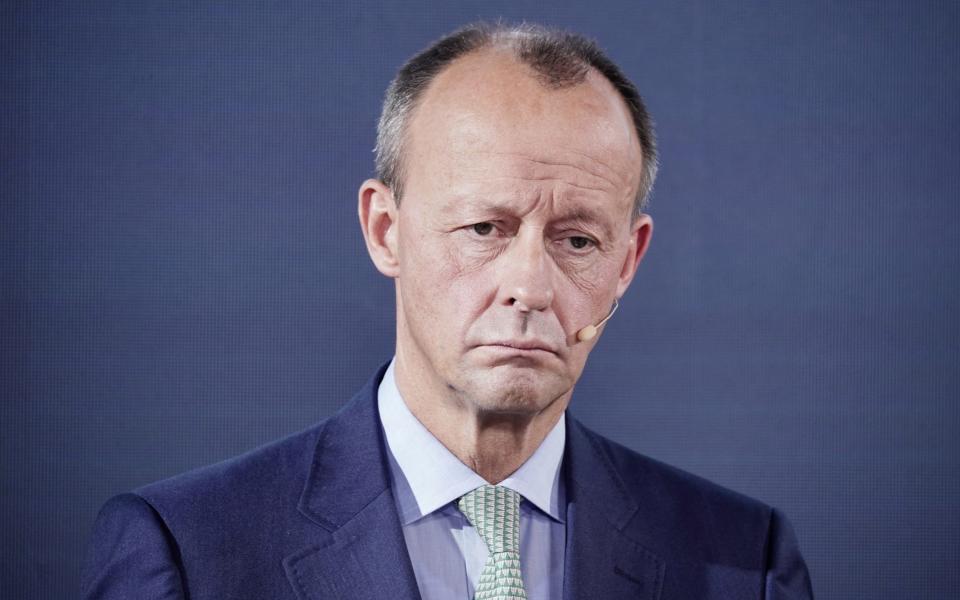Merkel's party mired in leadership 'conspiracy theories' as hopeful Friedrich Merz cries foul

Angela Merkel's CDU party in Germany has been rocked by internal warfare in recent days after leadership hopeful Friedrich Merz claimed that the party establishment was trying to sabotage his leadership bid.
On Tuesday, Mr Merz made the astonishing claim that the party conference had been postponed the day before, not for the official reason that rising coronavirus infections had made it impossible, but because people at the top of the party didn't want him to take over and thus in all likelihood became the next Chancellor.
“Since Sunday, the last stage of the plan ‘stop Merz’ has been enacted with the full support of the party establishment here in Berlin,” the millionaire businessman told Die Welt newspaper.
Asked whether Angela Merkel was behind the plan, Mr Merz didn't explicitly name the Chancellor, but said that “there is huge pressure and unfortunately much of the party leadership can’t stand up to it.”
The comments have caused outcry inside a party renowned for its self-discipline.
Outgoing leader Annegret Kramp-Karrenbauer admonished Mr Merz, saying “to mind there are too many conspiracy theories doing the rounds these days.”
Ms Kramp-Karrenbauer, who won against Mr Merz in a leadership contest in 2018 but gave up the role on the back of poor state election results, said that she “knows nobody” who wants to stop him becoming leader.
Mr Merz and the Chancellor were once adversaries before Ms Merkel ousted him from his role as Bundestag faction leader in 2002. When she failed to include him in her first cabinet, he stepped back from front line politics in 2009 and took up lucrative advisory roles at Blackrock and other large companies.
Response to Mr Merz's claims of a conspiracy have even been negative among sections of the media normally supportive of him.
The business paper Frankfurter Allgemeine Zeitung called him “a populist and a narcissist - of which there are enough in world politics.”
The next election will take place on September 26 next year, with the CDU leading in polling. The centre-right party is an election winning machine, but a key element of this success has been to keep internal disputes behind closed doors.

